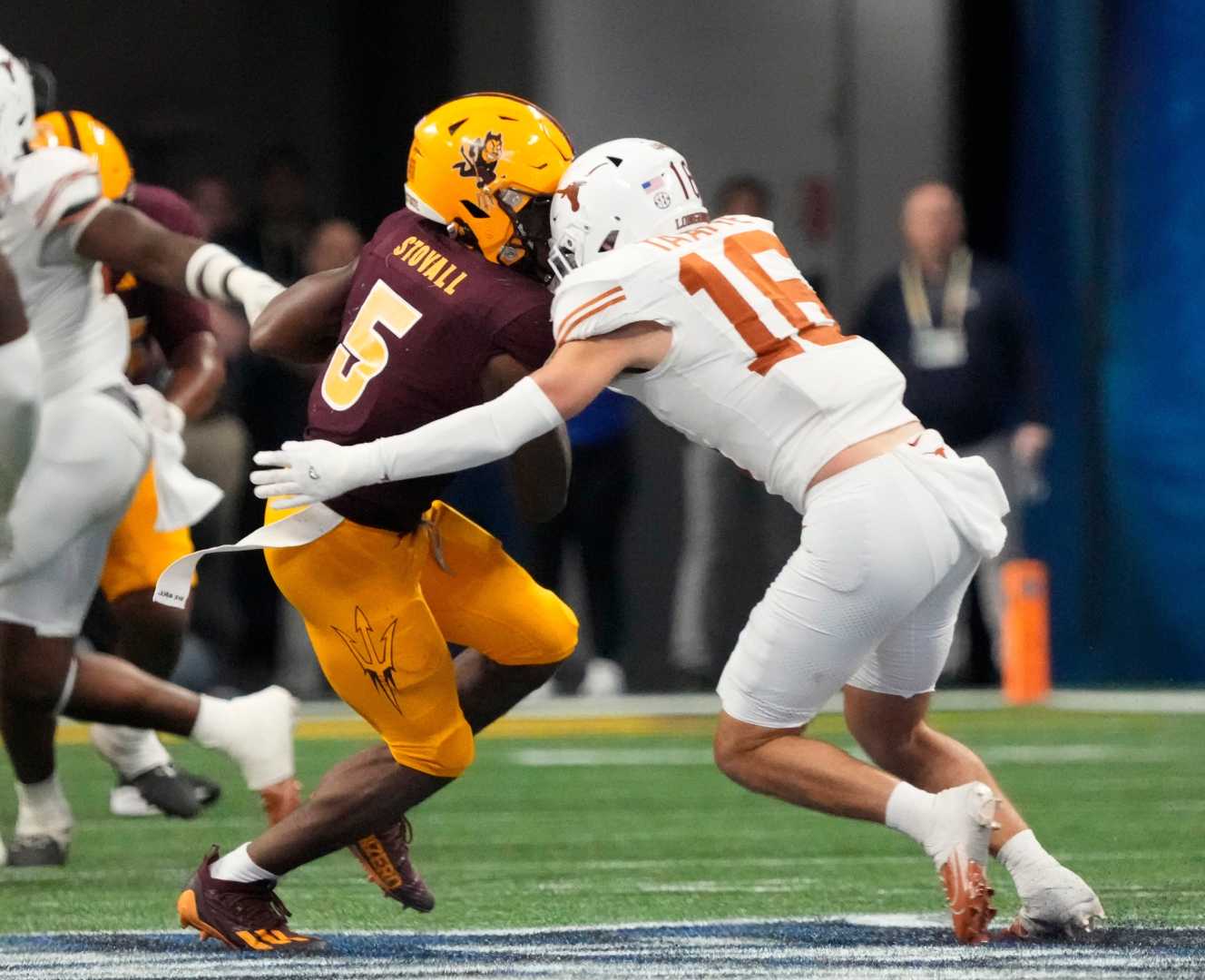Sports
Controversial Targeting Call Sparks Debate in Peach Bowl

A controversial non-call on a potential targeting penalty in the Peach Bowl College Football Playoff quarterfinal has sparked widespread debate among fans, analysts, and officials. The incident occurred during the final minutes of the game between Arizona State and Texas on Wednesday at Mercedes-Benz Stadium in Atlanta.
With the game tied at 24 and Arizona State facing third-and-15, quarterback Sam Leavitt completed a 10-yard pass to Melquan Stovall, who was hit hard by Texas defensive back Michael Taaffe. The officiating crew reviewed the play for potential targeting but ultimately ruled it was not a foul, a decision that has drawn criticism from experts and fans alike.
Matt Austin, the officiating expert on the broadcast, argued that the hit met the criteria for targeting. According to NCAA rules, targeting occurs when a player makes forcible contact to the head or neck area of a defenseless opponent with indicators such as launching, leading with the helmet, or lowering the head before initiating contact. Terry McAulay, a former NFL official and NBC rules analyst, echoed this sentiment on social media, calling the hit “clearly a targeting foul.”
The non-call proved pivotal, as Arizona State was unable to capitalize on the drive and the game went into overtime. Texas ultimately won 31-24, but many have questioned whether the outcome would have been different if targeting had been called. Arizona State would have gained a first down and advanced deep into Texas territory, potentially setting up a game-winning field goal or touchdown attempt in regulation.
Critics have also pointed to Arizona State’s struggling kicking game and Texas’ ability to convert a crucial fourth-and-13 play in overtime as factors in the loss. However, the targeting controversy remains the focal point of post-game discussions, with some calling it one of the great “what ifs” in Arizona State football history.
The debate has dominated sports talk shows, social media, and water cooler conversations, highlighting the impact of officiating decisions in high-stakes games. As the College Football Playoff continues, the incident serves as a reminder of the challenges officials face in interpreting and enforcing complex rules in real-time.












